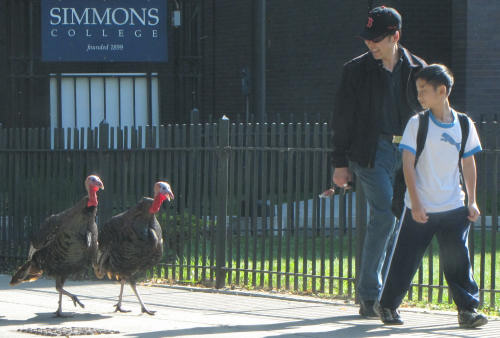By Amanda Bibbins
Staff Writer
On Thursday, Nov. 13, the Political Science/International Relations Department held a panel to discuss the 2014 midterm elections, and how the results will shape the political landscape over the next two years.
Panel speakers were Professor Catherine Paden, Professor Ben Cole, and Dean Leanne Doherty.
The professors began by reviewing the results of the election, explaining how Republicans picked up eight seats in the Senate, twelve seats in the House, and three gubernatorial seats.
“This is not particularly surprising, or necessarily dramatic, given other factors that were at play,” Professor Paden explained.
Paden discussed the race in Kentucky between Senator Mitch McConnell and Democratic challenger Alison Lundergan Grimes, mentioned in an earlier article, “Mass. governor race a toss-up.”
“It’s not surprising that [McConnell] won,” Paden explained. “What surprised people were the margins.” McConnell won the Senate race by 15.5 percent. “What was consistent was that candidates got trounced, and we didn’t expect that. We expected the races to be much closer than they were,” Paden said.
The panel also explained the low voter turnout this year, reported by the New York Times as 36.3 percent. This is the lowest voter turnout since 1942. When voters feel unrepresented by their representatives, they lose faith in their voting system, according to the panelists.
“Given the low approval ratings of both the President and Congress,” Professor Paden explained, “what we know about the American public right now and going into Midterms is that people felt pretty disempowered.”
Gallup currently puts favorability ratings of Democratic and Republican Parties at 36 percent and 42 percent respectively, as of Nov. 12. “People were turning on the people who represent them,” Paden continued. “And when that happens, it drags down participation.”
Dean Doherty explained the gubernatorial races in more detail, focusing on Alaska and Arkansas, which elected an Independent governor and Republican governor respectively. However, they voted for more progressive ballot measures, such as minimum wage increases.
In fact, in every state where minimum wage increases were proposed, they were voted through. So what does this say about the new representatives elected with a seemingly contradictory agenda? Dean Doherty said, “The majority of the electorate is swinging toward more moderate in policy areas. And really what we have is a cult of personality, candidate-centered politics.”
Dean Doherty answered the question on a lot of students’ minds: “What does this mean for the 2016 presidential election?” And the answer was: “Not much. This is not an attack on Hillary Rodham Clinton.”
Doherty claimed that instead Clinton’s largest setback will be the fact a member of her own party held office for two terms prior to the 2016 election. Among other factors that stack against Democrats running for the 2016 office is the state of the economy. While the President is not solely responsible for the economy, a poor economy reflects poorly on him as the economic figurehead, Doherty explained.
Professor Cole, a New Hampshire native, spoke to the nature of the New Hampshire Senate election between Democratic incumbent Jeanne Shaheen and former Massachusetts Senator Scott Brown. Brown was relying on the southern tier of New Hampshire to vote Republican. “Scott Brown won 60 percent of 800 votes,” Cole explained of the small towns that voted in favor of Brown. “Jeanne Shaheen was winning 60 percent of Exeter with 15,000 votes.”
Professor Cole’s projections for the next two years include a new dynamic between Representatives and the White House, whereas before representatives of both parties may not have hesitated to work on bipartisan agreements with the President, now will face severe repercussions with their colleagues if working with the White House.
The panel finished by opening up the floor to students and staff gathered for the event.
One of the most interesting questions came from junior Maggie Evans, who asked if ranked-choice voting in the gubernatorial elections would help make toss-up races more decisive, citing the Maine election among Paul LePage, Mike Michaud, and Eliot Cutler. Evan worked on the Michaud campaign this past summer and claimed Cutler’s presence in the race and refusal to drop out on multiple occasions negatively affected the votes for Michaud.
The panel explained how ranked-choice voting is used regularly in municipal election, but never before in a gubernatorial race. They did elaborate on how it could have offset the effect of having a third candidate in the race.
For more information on the Midterms, talk to the professors of the Simmons Political Science/International Relations Department.













